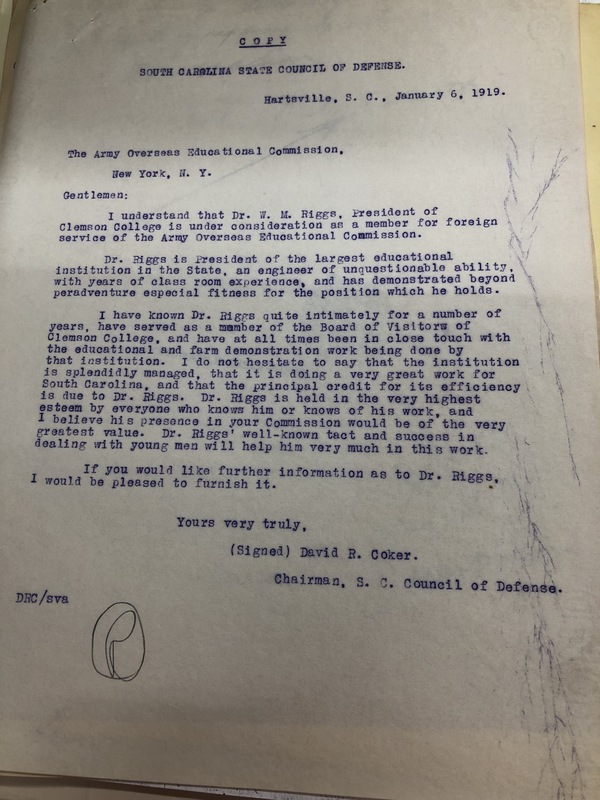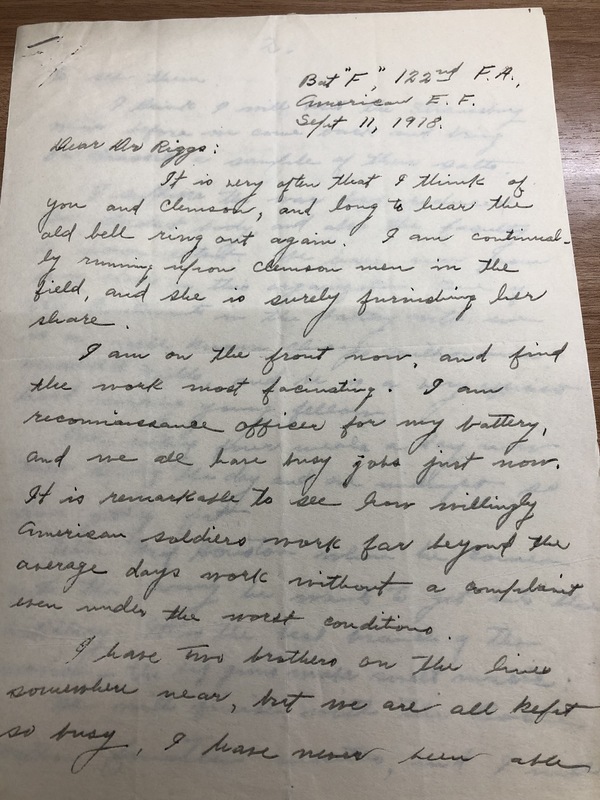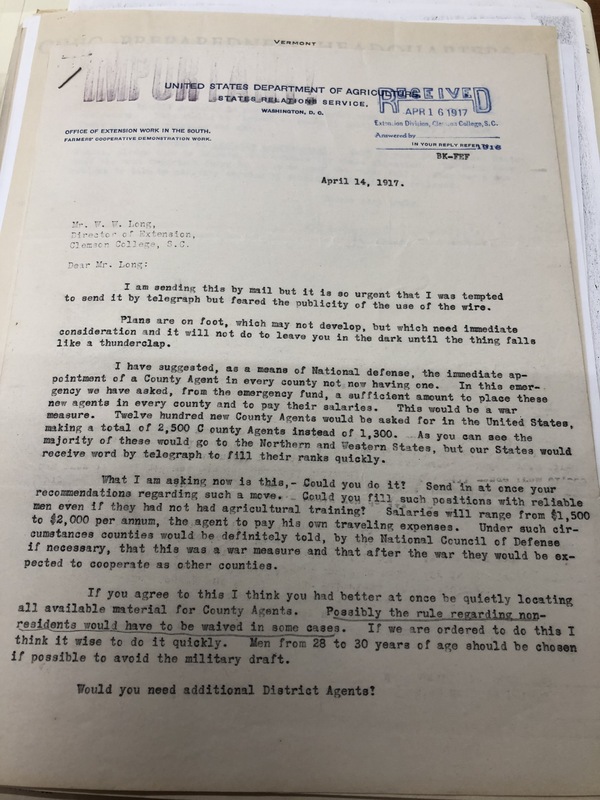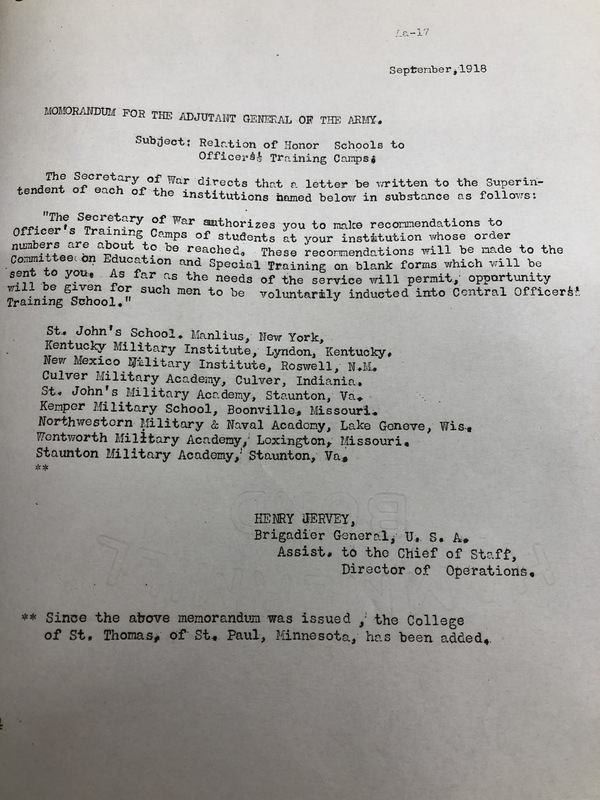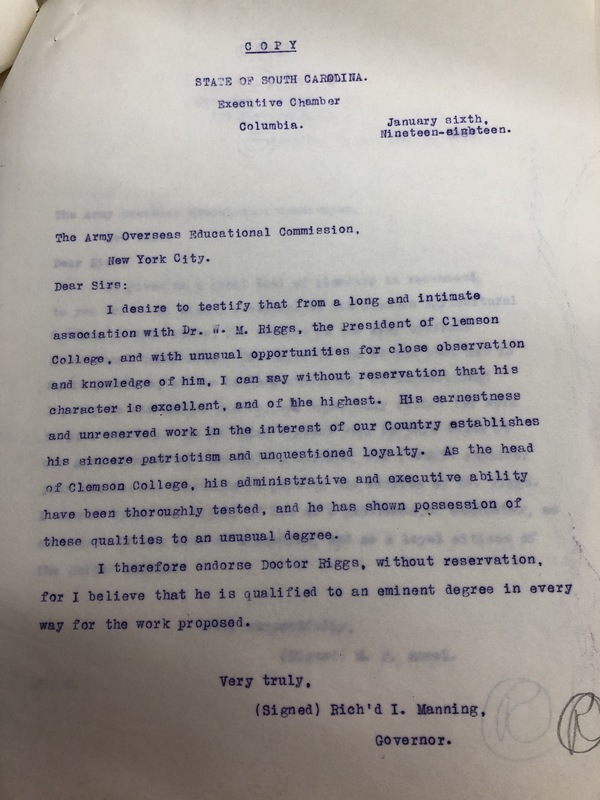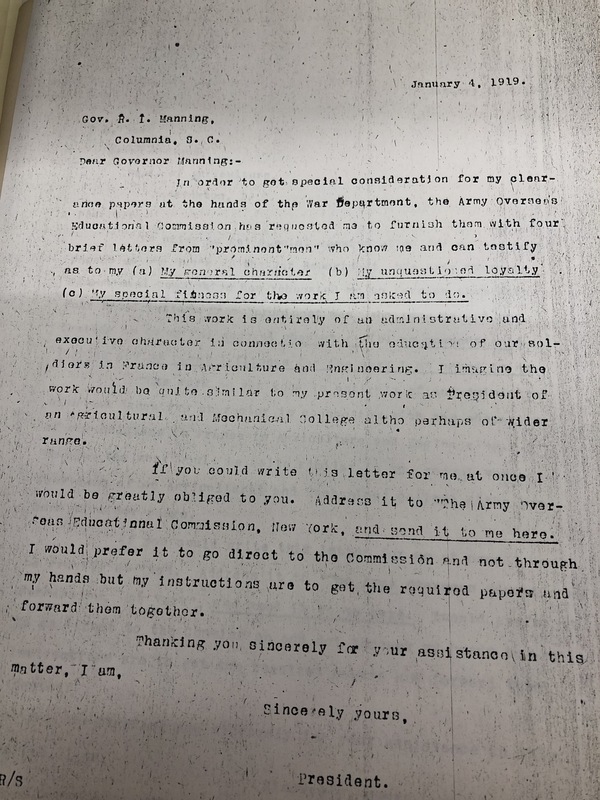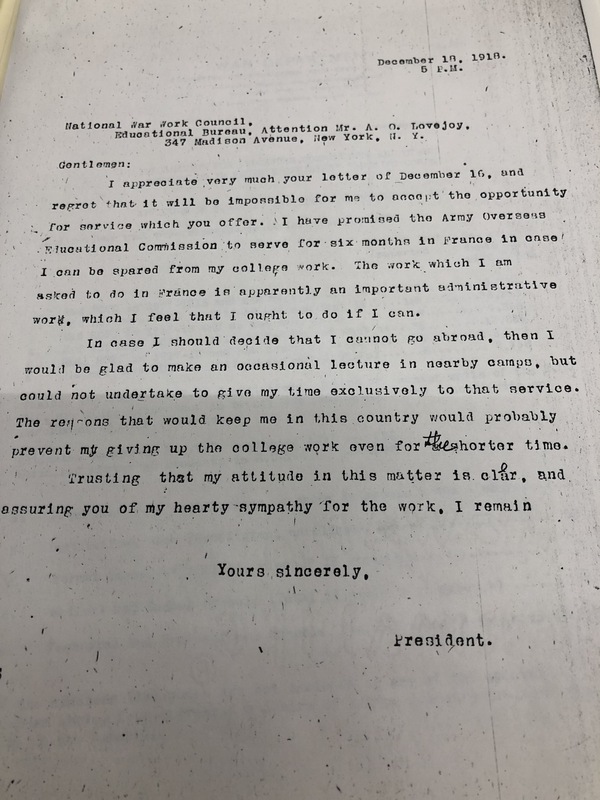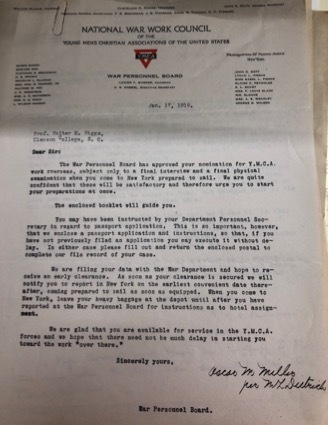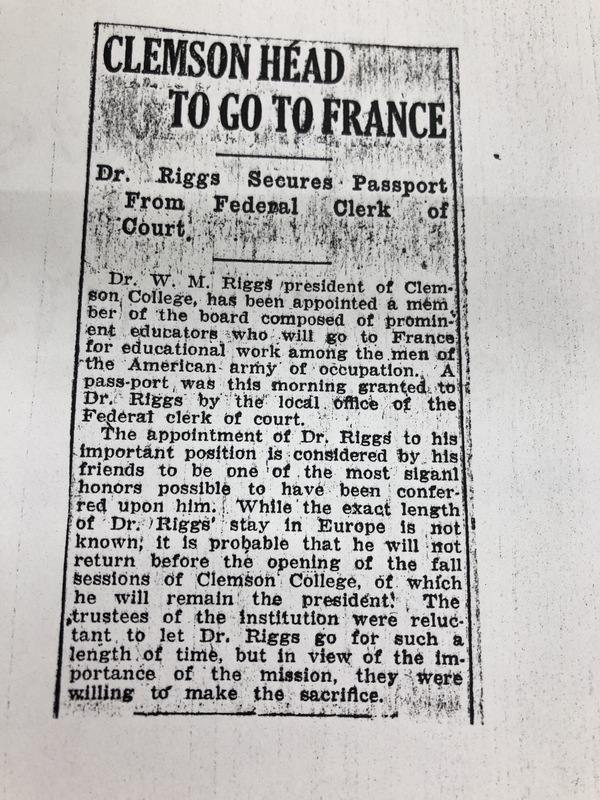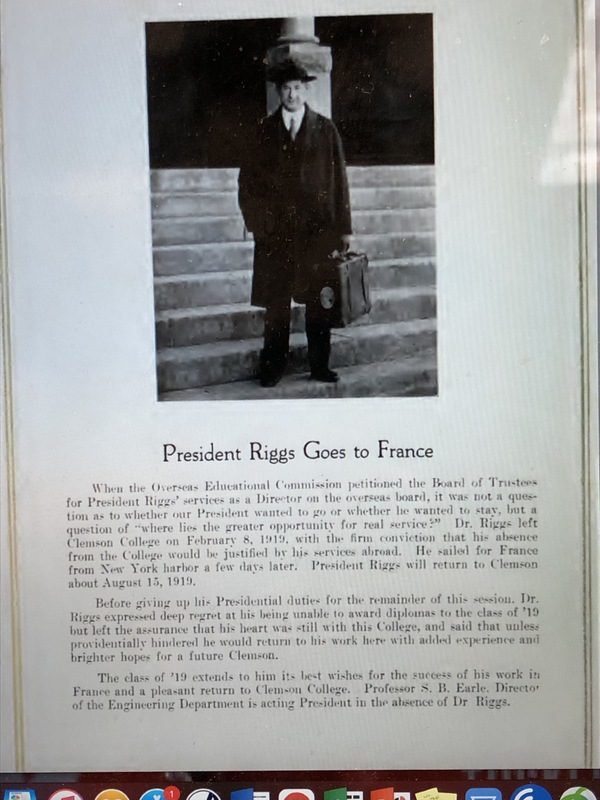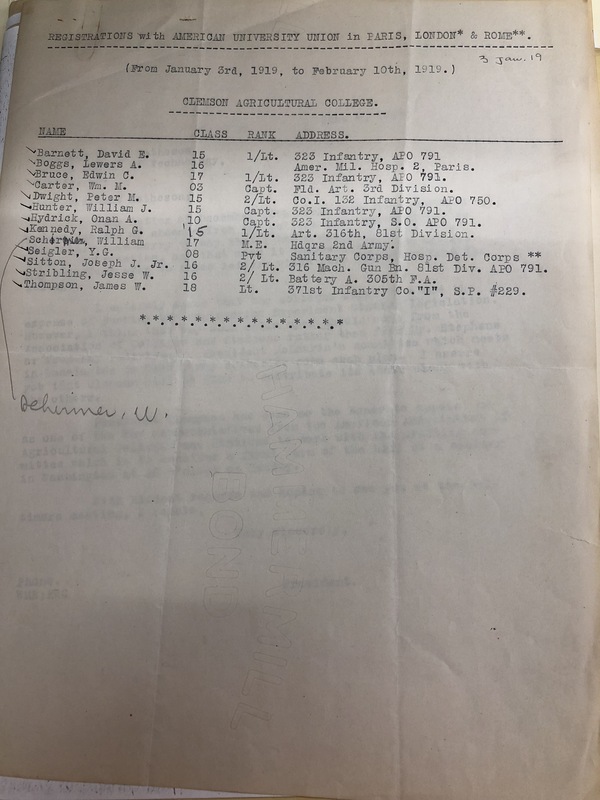National War Effort
Riggs found his leadership role expanding from the local and state level to a national level reasonably quickly. In April of 1917, only days after the U.S. entered WWI, Riggs was charged by the USDA to recommend men to become “county agents” to oversee the farming during the war, mainly in the western and northern states, to produce food for the war. Riggs was contacted because of his role as president of an agricultural and military college and his knowledge of men with a formal education in agriculture. Jerome V. Reel writes that Riggs: “active role in national advocacy and associations began to break down the provincial isolations that characterized most southern institutions (Reel, 230).
Riggs was also contacted by the War Department and Defense Council to help with the organizing of units in South Carolina and recommending officers to lead these regiments. By the wars’ end however, Riggs had gained national recognition and was recommended to head the American Overseas Educational Commission and served in France for six months organizing the education of American soldiers in Europe. In one letter, Riggs was also asked by the National War Work Council to speak in military camps near Clemson to encourage men and inform them of educational opportunities now that the war was over. In one letter, a member of the National War Work Council informed Riggs that his presence was “needed immediately” to help oversee the education of American soldiers in Paris. Being a top choice of both the National War Work Council and the American Overseas Educational Commission reveals how important Riggs had become in the war effort on national level.
